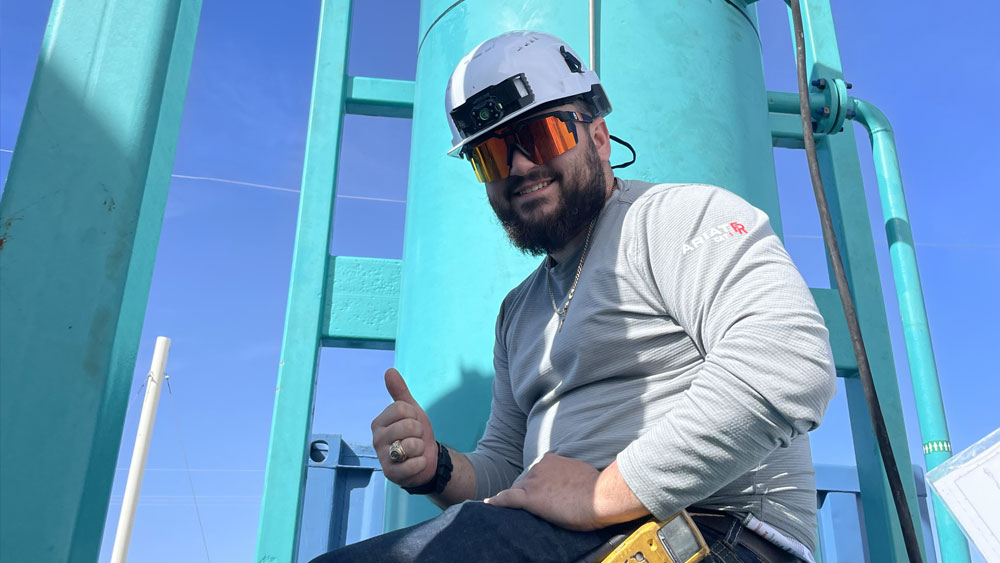
As first-generation Cuban Americans, Ronald Batista's family immigrated to the United States in 1996 with only a bag of clothes and $15. Batista’s journey to becoming a successful electrical engineer is paved with resilience, determination and the invaluable guidance of the Texas A&M University Engineering Academies.
After being admitted to Texas A&M University, he discovered the Engineering Academies program at Alamo College’s Northeast Lakeview campus and knew that was the route for him. This program, designed for students like Batista, offered a welcoming environment closer to home and at a lower cost. "The Academies were a lifesaver," Batista explains. "They allowed me to save money while staying close to my family for a couple of years." It was a launchpad fueled by support and a sense of belonging.
The Academies also fostered a strong sense of community. Incredible mentors such as Professor Dan Ball left an indelible mark on Batista. "He was a big player in how we act as engineers," he reflects, crediting Ball's "lock-chain way of thinking" for shaping his problem-solving approach.
Ball's dedication wasn't just to academics; he instilled life lessons that resonated deeply with Batista. These lessons proved invaluable when an internship opportunity fell through due to COVID. Undeterred, Batista applied to over 80 jobs, juggling studies with a demanding work schedule. His side hustle even earned him the nickname "Doordash" at his first engineering job at Garver Water Design, after graduating with a Bachelor of Science in electrical engineering in May 2023.
While he is no longer delivering food, he is ensuring clean water for communities through his work for Garver. He designs and pilots wastewater treatment projects, "making sure the black plague doesn't happen again," as he puts it with a smile. His work isn't just about technical expertise; it's about creating a better future. This dedication reflects the core values he learned at the Academies, a place where, as he says, "people genuinely care about each other and their communities."
Even if money is not an issue — still go [to an academy]. The relationships you build are unmatched.
The Engineering Academies program wasn't just about academics; it fostered lifelong connections. Batista will be the best man at a fellow Engineering Academies student's wedding, a testament to the powerful bonds formed during those formative years. Looking back, Batista offers this advice to future students: "Even if money is not an issue — still go [to an academy]. The relationships you build are unmatched."
The impact of the Academies program extends far beyond individual success stories. Programs like these, as Batista emphasizes, "play a big part" in shaping the future of engineering. They provide a supportive environment where students can not only learn the technical ropes but also develop the interpersonal skills and work ethic crucial for success. Professors like Dan Ball become more than instructors; they become mentors who guide students on their professional journeys.
Batista's story is a powerful example of how opportunity and a supportive environment can empower a first-generation immigrant to become a leader in his field. His journey is far from over, but with the foundation laid by the Engineering Academies program, Batista is well on his way to making a lasting impact on the world, one clean water treatment plant at a time.